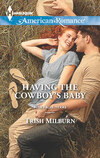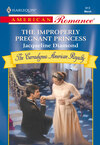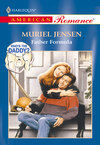Kitabı oku: «That Summer In Maine», sayfa 3
“I’m not sure I’ll be able to pay my way,” she reminded him. “I’ll go to the bank in the morning, but with all my credit cards missing, and most of my assets in stocks and real estate, I may not be able to get much cash.”
“You can owe me,” he said with a grin.
That was precisely what she didn’t want to do.
Chapter Three
The flight to the States the following afternoon seemed interminable, and was made even longer by the knowledge that she had only seventeen dollars in a purse she hated. According to the bank manager she’d spoken to that morning, her accounts had been frozen because Eduard had escaped capture and had apparently used one of her credit cards somewhere in Spain. In an effort to track him down, they wanted to stop any other activity on her accounts. They regretted the inconvenience. Not enough, she was sure.
She’d spent the next two hours scouring clothing and old purses for money left in pockets or coin compartments. Then, to add insult to injury, she had to put what she found in a brown leather pouch purse she’d never liked because everything sank to the bottom in it. Someday she was going to pummel Eduard herself for tossing her favorite ergonomic bag into a crevasse.
“I can’t believe it,” she grumbled, not for the first time. “Twenty-two years an actress, high-yield stocks and bonds, carefully acquired real estate, and I have seventeen dollars to my name.”
That sounded like a pouty princess talking—or possibly, Lady Bellows. Good. She wasn’t having to reach to stay in character.
Duffy wasn’t sure what that was all about—residual stress from her ordeal, maybe. As a girl, she’d never been one to flaunt her beauty, her intelligence, her family’s comfortable situation or her popularity. She’d been very real and able to lower herself to the level of a child who needed her friendship.
“I’ll give you my American Express,” he offered, “if you’re reluctant to take money from your father.”
She rolled her eyes. “Why would I be more willing to take money from you than from him?”
“Because we broke the ice when I bought your ticket,” he replied, knowing he was annoying her. He suspected that her life, her determination to live it onstage, was wobbling, and he was going to do all he could to topple it. “It’ll be easier the second time.” He was going to give her a week with her father in Arlington, then he was going to invite them to Lamplight Harbor to visit. He wanted her to see where he lived, get to know his boys, relax.
Then he was going to do his damnedest to seduce her.
She closed her eyes against his candor and shook her head. “I’m going to be happy to say goodbye to you when we reach Kennedy,” she said. “You were much sweeter as a boy than you are as a man.”
“A man has too much to do to be sweet,” he countered. “And sweetness is generally not a favorable trait in a bodyguard, anyway.”
She smiled reluctantly at that, then leaned back in her seat and studied him as though she was seeing the child and not the man. He didn’t particularly like that. But having her attention in any way was a plus.
“You must have gotten over the asthma,” she said. “All your efforts at bodybuilding certainly paid off.”
He watched her eyes scan his shoulders, but inclined his head modestly and pretended not to notice. “Thank you. I stayed with it, then learned a lot in the Army. I did outgrow the asthma and am now disgustingly healthy.”
“And a little overconfident.”
“A bodyguard—like a cop—has to have presence. This time you wouldn’t have to save me from the burning vaporizer. I could rescue you.”
Her eyes widened and she turned toward him with a slight smile at that memory, forgetting that he annoyed her.
“I’d forgotten that!” she said, her eyes losing focus as she thought back.
He’d been eight years old and just getting over a cold, so his asthma had been very active. His parents were at a dinner meeting with a client, and his mother had placed a vaporizer at his bedside to ease his breathing.
Maggie had been in the kitchen downstairs, preparing dinner, when a short in the vaporizer had caused it to catch fire. It had ignited the decorative quilt that hung over his bed, and he’d barely found the air in his lungs to shout Maggie’s name.
She’d appeared in an instant, hesitated only a second before unplugging the vaporizer, draping it with his blanket, and carrying the now smoking device into the bathroom where she dropped it in the tub and poured water on it. Then she ran back to yank the burning quilt off the wall and submerged it in the bathtub, too.
He always looked back on that as the moment he fell in love with her. She’d then put him in his parents’ bed, brought him dinner, then cleaned up the mess while he ate.
“Of course, I killed the vaporizer, your blanket and that beautiful quilt,” she remembered with a nostalgic smile.
“Maybe, but my father paid you with a hundred-dollar bill that night. You averted what might have been a real disaster.”
She nodded, accepting praise with a light laugh. “If I hadn’t saved you, you couldn’t have grown up to be such a smart aleck.”
“There, see. I knew it was all your fault.”
The flight attendant arrived with a cell phone. “Miss Lawton?”
Maggie blinked in surprise. “Yes.”
“The airport radioed the pilot with a call from your father. We have him on the pilot’s cell phone.”
She listened, looking surprised, then disappointed.
“What?” she exclaimed. “What about your heart? What about…?” She stopped abruptly, apparently forced to listen again.
“Dad, I’m sorry, too,” she said finally, “but I’ll be fine at the house. I don’t want to…no, I know you worry, but you shouldn’t. I’m fine. I can’t impose on him like that.”
She said placatingly, “Okay, fine. I’ll put him on. But I’m telling you now, I’m staying in Arlington.” She put her hand over the mouthpiece and fixed Duffy with a fierce expression. “My father’s been called overseas—some problem setting up a new government—and he wants me to go home with you rather than stay alone in Arlington. I’m not doing that. You will tell him that you’re very busy and you don’t have time to entertain a houseguest. Have I made myself clear?”
“Very,” he said amiably and took the phone she held out. “Hi, Elliott.”
“Duff!” Elliott said, his voice urgent. “I’m so sorry to do this to you, but I’ve been called overseas. They’re sending a chopper for me in twenty minutes. Would you mind very much taking Maggie home with you? I don’t want her to be alone.”
“I wouldn’t mind at all,” he replied.
Her expression darkened, though she obviously wasn’t sure what he and her father were saying. She threatened him with a pointing finger to his chest. “No!” she whispered. “Say, no!”
“Yes, of course,” he said into her glower. “I’ll be happy to take her home with me. Don’t worry. Just do your job and know that she’ll be safe and sound.”
Maggie put both hands to her face and fell back into her chair.
Duffy hung up the phone and handed it back to the flight attendant with a smug “Thank you!”
“You’ll like Lamplight Harbor.” He held up Maggie’s seat belt as the light went on.
“I’m going to Arlington,” she said, lowering her hands to put her belt together with an angry snap.
“With what?” he asked. “I’m holding your ticket.”
She threatened him with a look. “I’m going, anyway.”
“How are you going to get there?”
“Rent a car.” She wasn’t seeing the problem.
“And what are you going to pay for it with?”
“With…” she began, then remembered that all she had was seventeen dollars and no credit cards. That wasn’t going to get her a car.
She straightened in her seat and firmed her lips. She looked magnificent but not as confident as she probably imagined. “You’re going to rent it for me. Or let me have my ticket.”
He smiled. “Guess again, Lady Bellows.” When she looked surprised that he knew the name of her current role, he explained, “Eponine told me you’ve played her for so many performances that you take on some of her qualities when you’re stressed.”
“Look,” she said, clearly clutching her temper in both hands, “I came to the States to see my father, not to visit Lightbulb…what is it?”
“Lamplight Harbor,” he provided.
“Lamplight Harbor,” she repeated, “so that you can get some kind of payback for all the years you had to do what I said, by bullying me. I’m forty years old, Duffy,” she said with a sigh as though it were eighty. “And while some women love the forceful male, I’ve never been a fan. So, please. Lend me money to rent a car.”
“I have no intention of bullying you,” he said. “The deal I made with your father was to deliver you safely, and I…”
“I’m not a girl!” she said a little too loudly. Several nearby passengers turned to look at her. She lowered her voice. “I’m an adult woman,” she said. “Almost middle-aged. No one has to deliver me from one man’s hands to another’s!”
He caught the hand with which she gestured emphatically. “You’re thirty-nine,” he corrected, “not forty. That’s hardly middle-aged, and your father wants to know you’re being looked after, not because he thinks you’re not capable of caring for yourself, but because he loves you and you’ll always be his little girl. So let a man with heart trouble have a little peace about the situation.”
That last statement distracted her as he’d hoped it would. “He does have heart trouble?” she asked worriedly.
“I’m not sure,” he replied, “but do we want to risk worrying him further when he’s in a tight spot as it is?”
She finally fell against her seat back with a groan. “If you hadn’t butted into my life,” she said, “I could be in my bathtub right now, listening to Russell Watson and planning to go to Le Caprice for dinner.”
“What were you going to buy dinner with?”
“Oh, shut up.”
HE CANCELED MAGGIE’S TICKET for the connecting flight to Virginia, then pushed the luggage cart toward the little blue American-made sedan rental at the end of an aisle. She carried his cappuccino and her caramel latte. He always preferred to drive home from New York, enjoying the beauty and peace and quiet. It gave him time to readjust from his work life to his life as a parent.
“I thought you intended to stay only for a week,” he said, indicating her three large bags and train case. “There must be enough clothes in there for a four-hour fashion show.”
“Ha, ha,” she said, holding the cart handle while he unlocked the trunk. “Nice clothes is one of the perks of being in the public eye. Designers court you.”
“Well, they’ll certainly be able to find you. I’ll probably have to rent a horse trailer to get it all home.”
“Or to hold all the horse stuff you’re shoveling.”
He gave her a challenging look over his shoulder as he rearranged her bags several times before making them fit. The cart empty, she handed him the drinks, then pushed it toward a cart rack at a midway point in the aisle and hurried back to the car.
In the front seat he placed their drinks in a caddy between the seats, then backed out of the lot and onto the road that would lead them to northbound traffic.
“How far?” she asked when they were firmly ensconced in rush hour traffic.
“A little over four hundred miles,” he replied.
“So, we’re not going to make it tonight.”
“No. I thought we’d stay over in New Hampshire.”
She didn’t applaud the plan, but she didn’t dispute it, either, so Duffy just drove. She fell asleep outside of Connecticut and he watched the traffic as he reached behind him for his jacket to drop it across her.
She looked troubled, even in sleep, he thought, and hoped he had what it took to pull her out of the past and into a future with him. He’d thought he would have to play it cool, give her time, invite her and her father to his home. But Elliott’s sudden mission had been a fateful intervention forcing her into his path. He had to take advantage of it.
She awoke in northern Massachusetts. It was dusk.
She sat up guiltily and stretched, a gesture he was grateful he couldn’t watch because of the thinning but steady traffic.
“Where are we?” she asked on a yawn.
“Almost to the New Hampshire border. You ready for dinner?”
“I’m starved,” she admitted.
“Okay.” He pointed to a highway sign that promised Good Food and Cozy Cabins. “Looks like a good place to spend the night.”
The cabins were small and rustic, but each boasted a tidy bathroom and a television set. That was all Duffy needed, but after having seen Maggie’s town house, he wondered if she considered the cabins adequate.
He dropped her bag on her bed and watched her perusal of the pine-paneled, plaid-curtained room. She sat on the edge of the bed that was covered in a spread that matched the curtains, and bounced a little.
“It’s been such a long day,” she said. “This feels comfortable.”
He winced at the bold decorating. “The rooms are a little…plaid.”
She nodded. “They’re going for cozy. After all, their highway sign makes the claim. I like it.”
So, Lady Bellows was not offended by her surroundings. He was relieved to know that—and pleased.
She lay her upper body back against the mattress and closed her eyes with a contented sigh. “I should skip dinner,” she said, wriggling comfortably. “I didn’t get any exercise at all today except when we ran across the terminal to catch the plane.”
“Lunch was a long time ago,” he said, glancing at his watch. “And it’s almost seven. You should eat something, then you can sleep.”
She gave him a mildly scolding glance as she sat up. “Tell me you’re not going to try to police my food intake as well as everything else.”
“I’m not policing anything,” he insisted, offering her a hand up. “But if you’ve been given a month off to restore yourself after your ordeal in the mountains, you should take advantage of the opportunity. Good food and lots of rest.”
“Food doesn’t appeal to me. I haven’t expended any energy.”
She’d taken the hand he offered but still sat there, arguing, and he had to concentrate on her words one at a time to distract himself from the feel of her small, cool hand in his.
“The sign says they serve breakfast all day,” he remembered, privately congratulating himself on thinking clearly. “You could have an omelette or fruit.”
She considered those possibilities and used his hand to pull herself up. He had to apply almost no counterweight.
“Maybe I’ll just have dessert,” she said, snatching up her purse and heading for the door.
They talked companionably for an hour over the fruit salad she finally decided upon and the steak and salad that was his reward for a trying day.
They talked about their fathers, about people in the neighborhood both remembered, and encapsulated the past twenty years for each other.
Maggie spoke mostly about her career, about the roles she’d enjoyed and those she’d agonized over, the casts that had been fun to work with and those that had been difficult.
“Did you ever expect,” he asked, fascinated by her stories, “that you’d achieve such success?”
“It’s funny.” She shrugged, studying a section of mandarin orange on the tip of her fork. “I’ve loved the work, and there’s such an excitement in really finding the character and giving it all you’ve got. So I was about ten years into it when I realized that I was a respected actress. People recognized me on the street or in the market. It was flattering.”
“Did that every get to be intrusive?”
“Usually not,” she replied. “I mean, if I ever ran into Sean Connery on the street, I’d run up to him and tell him I adored him and ask him to sign my grocery list. But sometimes when we were out as a family and just wanted some private time, it would get in the way. Harry was always very patient about it, but I know he sometimes wished I clerked in a store.”
She stiffened suddenly, apparently surprising herself with that mention of her husband. She’d clearly put the subject of her husband and children off-limits. She ate the orange section, then asked him abruptly, “You’ve never been married, if I remember correctly?”
“That’s right,” he replied. “I came close once though, but she left me for Justin Hoyt.”
She looked surprised. “The rock star?”
“Right.”
“You traveled in those circles?”
“Indirectly. I provided security for them.”
“Was she another celebrity?”
He shook his head. “Lisa worked for me. She was beautiful and elegant and could drop a man twice her size in five seconds.” He grinned as he sipped at an iced coffee. “I thought she was remarkable.”
“What happened?”
He used to remember every word she’d said when she told him she was leaving with Hoyt, but the memory of that night and a lot of his other memories of her had slipped away from him. He thought he still remembered the best part of their time together.
“She never really explained. I can only conclude he was more exciting than I am. Providing protection for people is very serious work. You can’t allow yourself to be distracted like everyone else at a party or a social function. You have to be watching at all times.”
She frowned. “It must be hard to hold yourself apart like that.”
He nodded. “You get used to it. You just put a lid on that part of you that wants to respond and save it for later.”
“But if she worked for you, certainly she understood that.”
“She was in love. I guess that takes precedence over understanding and common sense.”
“Did it work out for them?”
“They’re still together. Though every once in a while there’s something in the celebrity news about them having a public argument.”
“I’m sorry,” she said gravely. “It must be hard to have invested a part of your life in someone and have them walk away like that.”
“Actually,” he said, holding out his cup as the waitress came by with the coffeepot, “I got the children, so I feel very fortunate.”
He was about to put the hot coffee to his lips when he saw the sudden horror in her face and stopped. “What?” he asked warily.
Children! He had children? She had to get out of here. She stifled the urge to get up immediately and run. She had to be calm so he would listen to her. But she didn’t feel calm.
“You never mentioned that you had children.” Her voice sounded high and defensive. She cleared her throat and tried to express herself reasonably. “In all our soul-baring exchanges of our past and present lives,” she said, aware that she was failing miserably at even pretending to sound calm, “you never once mentioned children. How many do you have?”
His eyes had narrowed on her, and she suspected he wasn’t angry but simply trying to understand her reaction. “Two,” he replied succinctly. “Boys.”
“God,” she breathed in a whisper. Two boys! She couldn’t do this. He had to take her to the airport.
“I’m afraid that changes everything,” she said, gathering up her purse and sweater. “I have to go.” She stood and headed for the door, half expecting him to follow and demand an explanation.
He didn’t. At the door she turned to see him taking care of the check, then he followed her at a leisurely pace. Of course. He had no reason to panic. He had the car keys and she had no money to call for other transportation.
Her panic deepened as she realized the difficulty she faced.
She waited outside for him, knowing she had no way out of this without his cooperation. She would have to explain.
He pushed his way out of the restaurant, saw her standing in the middle of the parking lot and went to join her.
“I’m sorry,” she said abruptly. “You must think I’m insane.”
He walked toward the cabins and she kept pace, having to move more quickly than she was used to to keep up. “No need to apologize,” he said. “I think I understand.”
She looked up at him in surprise, noticing absently that the warm night was redolent with the smell of wildflowers and early summer. “You do?”
Hands in his pockets, he glanced at her with an understanding smile and kept walking. “Yes. You lost two boys and that’s been a difficult adjustment. So you manage by never being around children. Just as you manage the loss of your husband by working all the time—and with a man who has no interest in women.”
For a moment she was speechless, surprised and a little irritated that he’d guessed that about her. Then she realized it meant she might be able to get him on her side.
She smiled with relief. “I’m so glad you understand. If you’ll just take me to the airport in Manchester in the morning, I’ll explain to my father…”
He stopped her in front of her door, his expression regretful but firm. “I can’t do that, I’m sorry. I promised your father—”
“He isn’t here!” she said, her momentary calm and relief exploding into anguish. “I can not go home with you. I promise I’ll explain to him that it was all my doing, that you insisted but I refused to cooperate. He knows how I can be.”
Duffy smiled and nodded. She waited hopefully.
“He also knows how I can be,” he said, taking her key from her slack fingers and opening her door. “I’m not taking you to the airport, Maggie. You’re coming home with me, and you’ll live through it. My boys are only four and seven, and while they’re loud and a little reckless, they’re sweet kids. You’ll like them.”
I had sweet kids, she thought. I can’t do this. I don’t want to do this. Then she remembered that she was a good actress.
“Please,” she said in a tremulous voice, the right note of need in it. “My profession makes me sensitive and a little high strung, so it’s been a little harder for me to…to find my feet again after the accident.” She paused, and drew a breath that suggested how hard it was to go on. She never traded on that—at least, not deliberately. But this stubborn man required desperate measures. “And I’ve just been through a lot with the kidnapping. Forcing me to do something I’m really not prepared for would…”
“Maggie.” He took her chin between his thumb and forefinger and pinched it gently. “I can’t imagine the pain of your loss. All I know is that your father doesn’t want you to be alone while he’s gone, and I promised that you wouldn’t be. Meanwhile, I have to get back to my boys. They do without me a lot in the winter, but during the summer I devote myself to them. We have to go home.”
She could see that arguing with him would be futile. On one level she admired and supported his devotion to his children. But on another level—that of her own self-preservation—she couldn’t let it destroy the only way she’d found she could function.
“Okay,” she said finally. “Thanks for dinner. Good night.”
He studied her a moment, and she knew he was suspecting this disagreement couldn’t be over so easily. She forced a small smile to try to convince him otherwise. Then she closed the door.
She paced the carpet beside her bed, wondering what to do. There had to be a solution. There was always a solution. No one was going to force her out of her cocoon. It was miserably uncomfortable but it allowed her to function.
“I’m going to Arlington,” she told herself aloud, like an affirmation that would help her visualize her freedom from Duffy’s plan.
Then it occurred to her that all she had to do was get the keys to the car.
The fact that they were in the pocket of Duffy’s pants was not insurmountable.
Ücretsiz ön izlemeyi tamamladınız.


















